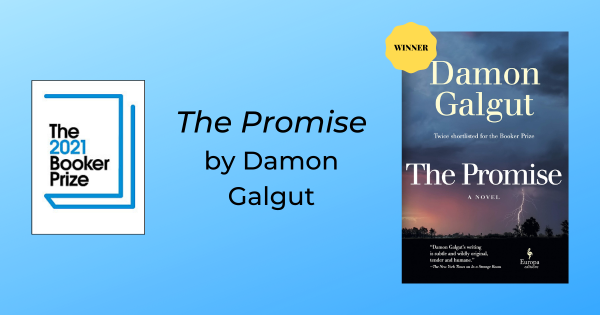
The Promise, by Damon Galgut, was named the winner of the 2021 Booker Prize in London this afternoon. His novel follows the life of three South African siblings reunited over the course of three decades by four different funerals, all while the turmoil of their nation reflects on their own lives.
The Booker Prize was first awarded in 1969 as a literary prize awarded to the best novel written by an Irish, South African, or British Commonwealth citizen. In 2014, the prize widened its criteria to any English-language novel published in the United Kingdom or Ireland.
Galgut is the first South African writer to win the Booker Prize since 1999. He joins a list of prestigious winners, including Marlon James, Margaret Atwood, Kiran Desai, and others. The winners from the last decade are included in the book list below.
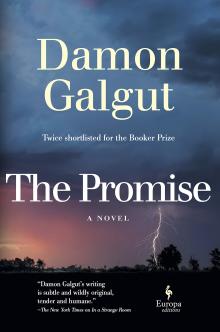
2021: 'The Promise,' by Damon Galgut
A modern family saga written in gorgeous prose by three-time Booker Prize-shortlisted author Damon Galgut.
Haunted by an unmet promise, the Swart family loses touch after the death of their matriarch. Adrift, the lives of the three siblings move separately through the uncharted waters of South Africa; Anton, the golden boy who bitterly resents his life's unfulfilled potential; Astrid, whose beauty is her power; and the youngest, Amor, whose life is shaped by a nebulous feeling of guilt.
Reunited by four funerals over three decades, the dwindling family reflects the atmosphere of its country--one of resentment, renewal, and, ultimately, hope. The Promise is an epic drama that unfurls against the unrelenting march of national history, sure to please current fans and attract many new ones.
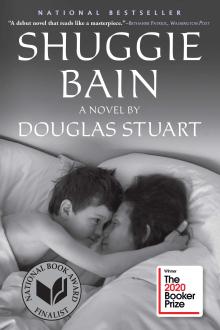
2020 - 'Shuggie Bain,' by Douglas Stuart
A stunning debut novel by a masterful writer telling the heartwrenching story of a young boy and his alcoholic mother, whose love is only matched by her pride.
Shuggie Bain is the unforgettable story of young Hugh "Shuggie" Bain, a sweet and lonely boy who spends his 1980s childhood in run-down public housing in Glasgow, Scotland. Thatcher's policies have put husbands and sons out of work, and the city's notorious drugs epidemic is waiting in the wings.
Shuggie's mother Agnes walks a wayward path: she is Shuggie's guiding light but a burden for him and his siblings. She dreams of a house with its own front door while she flicks through the pages of the Freemans catalogue, ordering a little happiness on credit, anything to brighten up her grey life. Married to a philandering taxi-driver husband, Agnes keeps her pride by looking good--her beehive, make-up, and pearly-white false teeth offer a glamorous image of a Glaswegian Elizabeth Taylor. But under the surface, Agnes finds increasing solace in drink, and she drains away the lion's share of each week's benefits--all the family has to live on--on cans of extra-strong lager hidden in handbags and poured into tea mugs. Agnes's older children find their own ways to get a safe distance from their mother, abandoning Shuggie to care for her as she swings between alcoholic binges and sobriety. Shuggie is meanwhile struggling to somehow become the normal boy he desperately longs to be, but everyone has realized that he is "no right," a boy with a secret that all but him can see. Agnes is supportive of her son, but her addiction has the power to eclipse everyone close to her--even her beloved Shuggie.
A heartbreaking story of addiction, sexuality, and love, Shuggie Bain is an epic portrayal of a working-class family that is rarely seen in fiction. Recalling the work of Édouard Louis, Alan Hollinghurst, Frank McCourt, and Hanya Yanagihara, it is a blistering debut by a brilliant novelist who has a powerful and important story to tell.
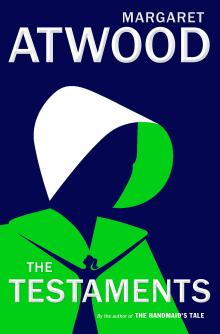
2019* - 'The Testaments,' by Margaret Atwood
The Testaments is a modern masterpiece, a powerful novel that can be read on its own or as a companion to Margaret Atwood's classic, The Handmaid's Tale.
More than fifteen years after the events of The Handmaid's Tale, the theocratic regime of the Republic of Gilead maintains its grip on power, but there are signs it is beginning to rot from within. At this crucial moment, the lives of three radically different women converge, with potentially explosive results.
Two have grown up as part of the first generation to come of age in the new order. The testimonies of these two young women are joined by a third: Aunt Lydia. Her complex past and uncertain future unfold in surprising and pivotal ways.
With The Testaments, Margaret Atwood opens up the innermost workings of Gilead, as each woman is forced to come to terms with who she is, and how far she will go for what she believes.
*There were two winners of the Booker Prize in 2019.
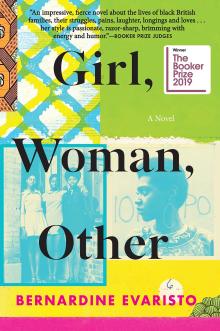
2019* - 'Girl, Woman, Other,' by Bernadine Evaristo
Bernardine Evaristo is the winner of the 2019 Booker Prize and the first black woman to receive this highest literary honor in the English language. Girl, Woman, Other is a magnificent portrayal of the intersections of identity and a moving and hopeful story of an interconnected group of Black British women that paints a vivid portrait of the state of contemporary Britain and looks back to the legacy of Britain's colonial history in Africa and the Caribbean.
The twelve central characters of this multi-voiced novel lead vastly different lives: Amma is a newly acclaimed playwright whose work often explores her Black lesbian identity; her old friend Shirley is a teacher, jaded after decades of work in London's funding-deprived schools; Carole, one of Shirley's former students, is a successful investment banker; Carole's mother Bummi works as a cleaner and worries about her daughter's lack of rootedness despite her obvious achievements. From a nonbinary social media influencer to a 93-year-old woman living on a farm in Northern England, these unforgettable characters also intersect in shared aspects of their identities, from age to race to sexuality to class.
Sparklingly witty and filled with emotion, centering voices we often see othered, and written in an innovative fast-moving form that borrows technique from poetry, Girl, Woman, Other is a polyphonic and richly textured social novel that shows a side of Britain we rarely see, one that reminds us of all that connects us to our neighbors, even in times when we are encouraged to be split apart.
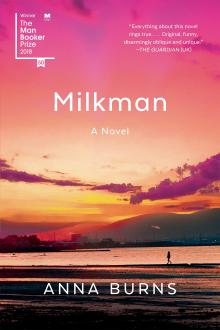
2018 - 'Milkman,' by Anna Burns
In an unnamed city, middle sister stands out for the wrong reasons. She reads while walking, for one. And she has been taking French night classes downtown. So when a local paramilitary known as the milkman begins pursuing her, she suddenly becomes "interesting," the last thing she ever wanted to be. Despite middle sister's attempts to avoid him--and to keep her mother from finding out about her maybe-boyfriend--rumors spread and the threat of violence lingers. Milkman is a story of the way inaction can have enormous repercussions, in a time when the wrong flag, wrong religion, or even a sunset can be subversive. Told with ferocious energy and sly, wicked humor,Milkman establishes Anna Burns as one of the most consequential voices of our day.
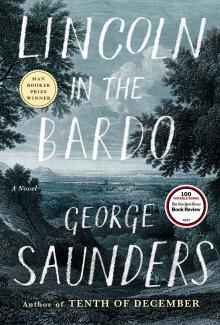
2017 - 'Lincoln in the Bardo,' by George Saunders
February 1862. The Civil War is less than one year old. The fighting has begun in earnest, and the nation has begun to realize it is in for a long, bloody struggle. Meanwhile, President Lincoln's beloved eleven-year-old son, Willie, lies upstairs in the White House, gravely ill. In a matter of days, despite predictions of a recovery, Willie dies and is laid to rest in a Georgetown cemetery. "My poor boy, he was too good for this earth," the president says at the time. "God has called him home." Newspapers report that a grief-stricken Lincoln returns, alone, to the crypt several times to hold his boy's body.
From that seed of historical truth, George Saunders spins an unforgettable story of familial love and loss that breaks free of its realistic, historical framework into a supernatural realm both hilarious and terrifying. Willie Lincoln finds himself in a strange purgatory where ghosts mingle, gripe, commiserate, quarrel, and enact bizarre acts of penance. Within this transitional state--called, in the Tibetan tradition, the bardo--a monumental struggle erupts over young Willie's soul.
Lincoln in the Bardo is an astonishing feat of imagination and a bold step forward from one of the most important and influential writers of his generation. Formally daring, generous in spirit, deeply concerned with matters of the heart, it is a testament to fiction's ability to speak honestly and powerfully to the things that really matter to us. Saunders has invented a thrilling new form that deploys a kaleidoscopic, theatrical panorama of voices to ask a timeless, profound question: How do we live and love when we know that everything we love must end?
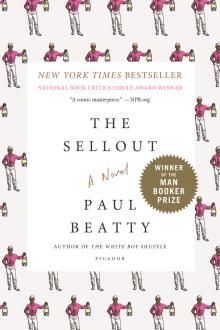
2016 - 'The Sellout,' by Paul Beatty
A biting satire about a young man's isolated upbringing and the race trial that sends him to the Supreme Court, Paul Beatty's The Sellout showcases a comic genius at the top of his game. It challenges the sacred tenets of the United States Constitution, urban life, the civil rights movement, the father-son relationship, and the holy grail of racial equality--the black Chinese restaurant.
Born in the "agrarian ghetto" of Dickens--on the southern outskirts of Los Angeles--the narrator of The Sellout resigns himself to the fate of lower-middle-class Californians: "I'd die in the same bedroom I'd grown up in, looking up at the cracks in the stucco ceiling that've been there since '68 quake." Raised by a single father, a controversial sociologist, he spent his childhood as the subject in racially charged psychological studies. He is led to believe that his father's pioneering work will result in a memoir that will solve his family's financial woes. But when his father is killed in a police shoot-out, he realizes there never was a memoir. All that's left is the bill for a drive-thru funeral.
Fuelled by this deceit and the general disrepair of his hometown, the narrator sets out to right another wrong: Dickens has literally been removed from the map to save California from further embarrassment. Enlisting the help of the town's most famous resident--the last surviving Little Rascal, Hominy Jenkins--he initiates the most outrageous action conceivable: reinstating slavery and segregating the local high school, which lands him in the Supreme Court.

2015 - 'A Brief History of Seven Killings,' by Marlon James
In A Brief History of Seven Killings, Marlon James combines brilliant storytelling with his unrivaled skills of characterization and meticulous eye for detail to forge an enthralling novel of dazzling ambition and scope.
On December 3, 1976, just before the Jamaican general election and two days before Bob Marley was to play the Smile Jamaica Concert to ease political tensions in Kingston, seven gunmen stormed the singer's house, machine guns blazing. The attack wounded Marley, his wife, and his manager, and injured several others. Little was officially released about the gunmen, but much has been whispered, gossiped and sung about in the streets of West Kingston. Rumors abound regarding the assassins' fates, and there are suspicions that the attack was politically motivated.
A Brief History of Seven Killings delves deep into that dangerous and unstable time in Jamaica's history and beyond. James deftly chronicles the lives of a host of unforgettable characters - gunmen, drug dealers, one-night stands, CIA agents, even ghosts - over the course of thirty years as they roam the streets of 1970s Kingston, dominate the crack houses of 1980s New York, and ultimately reemerge into the radically altered Jamaica of the 1990s. Along the way, they learn that evil does indeed cast long shadows, that justice and retribution are inextricably linked, and that no one can truly escape his fate.
Gripping and inventive, shocking and irresistible, A Brief History of Seven Killings is a mesmerizing modern classic of power, mystery, and insight.
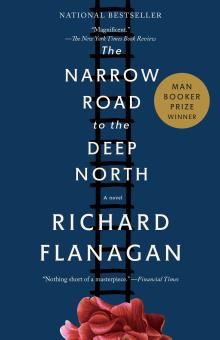
2014 - 'The Narrow Road to the Deep North,' by Richard Flanagan
From the author of the acclaimed Gould's Book of Fish, a magisterial novel of love and war that traces the life of one man from World War II to the present.
August, 1943: Australian surgeon Dorrigo Evans is haunted by his affair with his uncle's young wife two years earlier. His life, in a brutal Japanese POW camp on the Thai-Burma Death Railway, is a daily struggle to save the men under his command. Until he receives a letter that will change him forever.
A savagely beautiful novel about the many forms of good and evil, of truth and transcendence, as one man comes of age, prospers, only to discover all that he has lost.
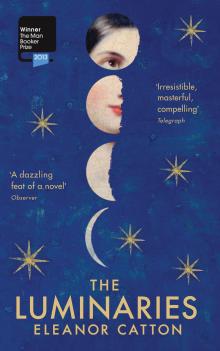
2013 - 'The Luminaries,' by Eleanor Catton
It is 1866, and Walter Moody has come to stake his claim in New Zealand's booming gold rush. On the stormy night of his arrival, he stumbles across a tense gathering of 12 local men who have met in secret to discuss a series of unexplained events: a wealthy man has vanished, a prostitute has tried to end her life, and an enormous cache of gold has been discovered in the home of a luckless drunk. Moody is soon drawn into a network of fates and fortunes that is as complex and exquisitely ornate as the night sky.
Richly evoking a mid-nineteenth-century world of shipping, banking, and gold rush boom and bust, The Luminaries is at once a fiendishly clever ghost story, a gripping page-turner, and a thrilling novelistic achievement. It richly confirms that Eleanor Catton is one of the brightest stars in the international literary firmament.
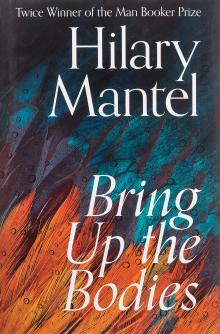
2012 - 'Bring Up the Bodies,' by Hilary Mantel
The sequel to Hilary Mantel's 2009 Man Booker Prize winner and New York Times bestseller, Wolf Hall delves into the heart of Tudor history with the downfall of Anne Boleyn
Though he battled for seven years to marry her, Henry is disenchanted with Anne Boleyn. She has failed to give him a son and her sharp intelligence and audacious will alienate his old friends and the noble families of England. When the discarded Katherine dies in exile from the court, Anne stands starkly exposed, the focus of gossip and malice.
At a word from Henry, Thomas Cromwell is ready to bring her down. Over three terrifying weeks, Anne is ensnared in a web of conspiracy, while the demure Jane Seymour stands waiting her turn for the poisoned wedding ring. But Anne and her powerful family will not yield without a ferocious struggle. Hilary Mantel's Bring Up the Bodies follows the dramatic trial of the queen and her suitors for adultery and treason. To defeat the Boleyns, Cromwell must ally with his natural enemies, the papist aristocracy. What price will he pay for Anne's head?
Last Modified December 16, 2025